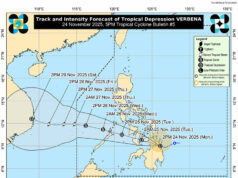Angara calls for amendment of PHL water code
SENATOR Juan Edgardo M. Angara is proposing to amend the 43-year-old Water Code of the Philippines to ensure that there is enough water “across the country at all times.”
Mr. Angara, in a statement released on Friday, said the water problem in Metro Manila and Rizal “brings to light the urgent need to put in place an integrated water resource master plan for water security.”
”With the dry spell getting severe each year, climate change and increasing population, it is imperative that we secure all available and accessible water resources,” he added.
“Every year our water dams drop to critical levels. Unless we address these and come up with long-term and integrated solutions, we are all in trouble,” he said.
Hence, the lawmaker is proposing to amend the 43-year-old Water Code of the Philippines, or Presidential Decree No. 1067. “We have to make the law more responsive to the needs of the times,” he said.
This should include an “audit of all government agencies and institutions dealing with water resource and its management whose functions seem to be teeming with duplication.”
Over 30 agencies manage and oversee the country’s water resources notes a 2018 study by Arangkada Philippines.
“This is a very complicated environment, and rather than come out with a timely response to water problems, it may be impeding our government agencies,” Mr. Angara said.
He also said that the government should appoint an “anti-El Niño czar” who will “orchestrate a multiagency response to the dry spell, which is already causing farm harvest to dip.”
For her part, Senator Loren B. Legarda released a statement on Friday saying “The La Mesa Dam breaching critical level, the lowest in years, and the dry climate outlook for most of our provinces in light of the weak El Niño and climate change should serve as a reminder for all of us to use our water resources more sustainably, also as a means to protect public health, food security, and ecosystems.”
Citing the “confirmation” by the Philippine Atmospheric, Geophysical and Astronomical Services Administration that 2019 “is set to be the warmest year on record” due to El Niño, she said: “We must treat this issue as a climate change concern and not just a water supply issue. The El Niño phenomenon is a natural process, but its varying effects are compounded by climate change.” — Arjay L. Balinbin



